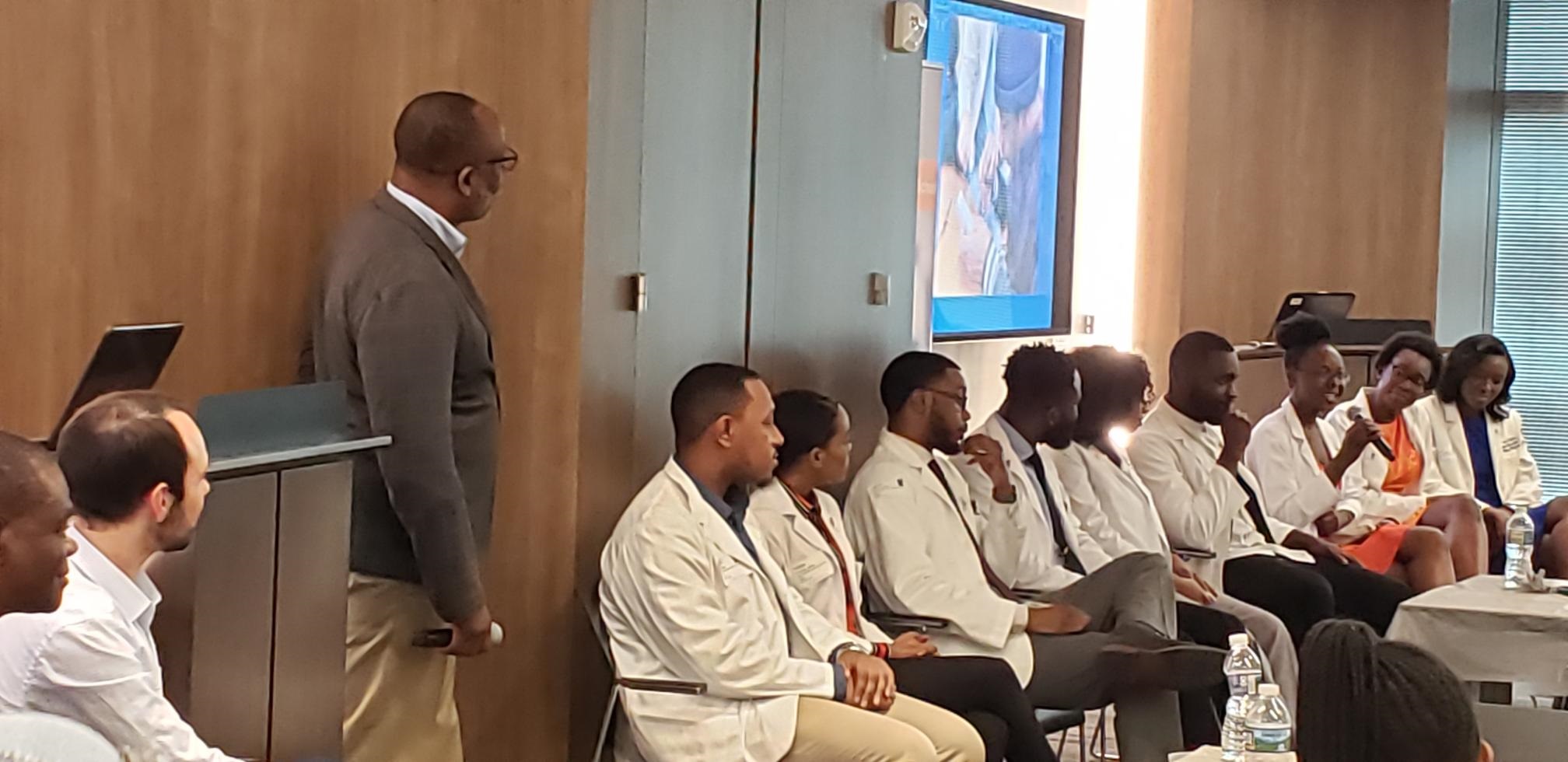Health Equity

News, Statements, and Testimony on Health Equity Issues
25th Council session information coming soon.
MSDC to DHCF: Fund Prior Authorization
On Thursday, MSDC Advocacy Committee Chair Dr. Klint Peebles testified that the District government needs to fully fund the new prior authorization legislation.
Dr. Peebles testified at the DC Department of Healthcare Finance (DHCF) oversight hearing before the Committee on Health. The annual hearing is an opportunity for the public to share concerns, suggestions, and comments on the department's performance in the previous year.
MSDC used the hearing to draw attention to the inequality in DC's prior auth legislation, now in effect. Due to the bill containing a funding requirement, private insurers are required to comply with the new law but Medicaid providers do not until funding for compliance is included in the DC budget.
Below is the written statement and testimony of Dr. Peebles.
February 8, 2024
Councilmember Vincent Gray Councilmember Christina Henderson
Chair, Committee on Health Equity Chair, Committee on Health
1350 Pennsylvania Ave NW 1350 Pennsylvania Ave NW
Washington, DC 20004 Washington, DC 20004
Dear Chair Henderson and Chair Gray,
The Medical Society of the District of Columbia (MSDC) is the largest medical organization representing metropolitan Washington physicians in the District. We advocate on behalf of all 11,000 plus licensed physicians in the District and seek to make the District the nation’s model for patient care and physician practice.
We applaud Deputy Mayor Wayne Turnage, Medicaid Director Melisa Byrd, and the entire leadership team and staff of the Department of Health Care Finance. We have found their offices to be responsive and communicative. MSDC is also proud to serve on the Medical Care Advisory Committee.
Both of you, and many members of your committees, supported B25-124, the Prior Authorization Reform Amendment Act, when it was introduced. The legislation has now become law but due to a fiscal note the law only applies to private insurance. This creates a health inequality that needs to be rectified, unfortunately through the budget process.
Consider two women patients. Woman #1 goes to her dermatologist and is prescribed a name brand drug for eczema. If she has private insurance and that insurer issued a prior authorization for the prescription, the insurer would (1) need to respond to any appeal of the denial in a set period of time, (2) have licensed physicians reviewing the request and appeal, (3) be required to offer information to help with any appeal, and (4) would not be allowed to make determinations based on cost.
Now consider Woman #2. She goes to the dermatologist but is a DC Medicaid beneficiary. The same prescription may also have a prior authorization, but unlike Woman #1, this person has no support and may be left in limbo waiting to see if her appeal is denied. The MCO may make a determination on any number of factors and only quality metrics may determine how quickly they respond. DC area licensed physicians may be involved in the decisions, but they are not required to be. Woman #1 may have resolution and her prescription while Woman #2 must wait for her medical treatment, all because of their insurance type. Considering one of the DC MCOs in 2019 denied almost 20% of claims from the District, this person has a good chance of not even receiving her medication.
Recently CMS released new prior authorization guidance for public plans that takes some of the same elements as the DC law and puts them into effect in two years. DHCF should get started now on complying with DC and federal law and adopt the requirements of B25-124. While we recognize that this is a challenging budget year, this type of health equity issue cannot wait and the gap in care will become apparent as the District’s prior auth law goes into effect.
Please reach out to the MSDC office if our membership can be of assistance on these or any issue. We look forward to working with you and the Committee to make DC the nation’s model for patient care and physician practice.
Sincerely,
Klint Peebles, MD FAAD
Director, Medical Society of DC
Sample of Health Equity Legislation MSDC Tracked
What does it say? The bill allows for the administration of medicinal marijuana in schools as well as allows students to bring sunscreen to schools and apply it without a prescription.
MSDC position: MSDC supports the language permitting sunscreen application in schools
Current status: A win for DC physicians and public health! The legislation passed the Council in February and was signed by the Mayor. Previous temporary and emergency legislation permitted students to use sunscreen at schools this school year already.
What does it say? The bill requires DC Health to establish an electronic Medical Order for Scope of Treatment registry (eMOST).
MSDC position: MSDC supports this legislation to more easily allow patients to make their treatment orders known.
Current status: A win for the physician community and our patients! The Council passed the bill in December and the Mayor signed it into law on January 16, 2020.
What does it say? The bill would implement a 1.5 cent per ounce tax on the distribution of "sugary" beverages. The money collected from the tax would establish a Healthy People, Healthy Places Open Spaces Grant Program.
MSDC position: MSDC sent a letter to Council Chair Mendelson asking for a hearing to discuss all of the issues around a beverage tax.
Current status: The bill was introduced October 8, 2019 and referred to the Committee on Business and Economic Development and the Committee of the Whole.

Leave a comment